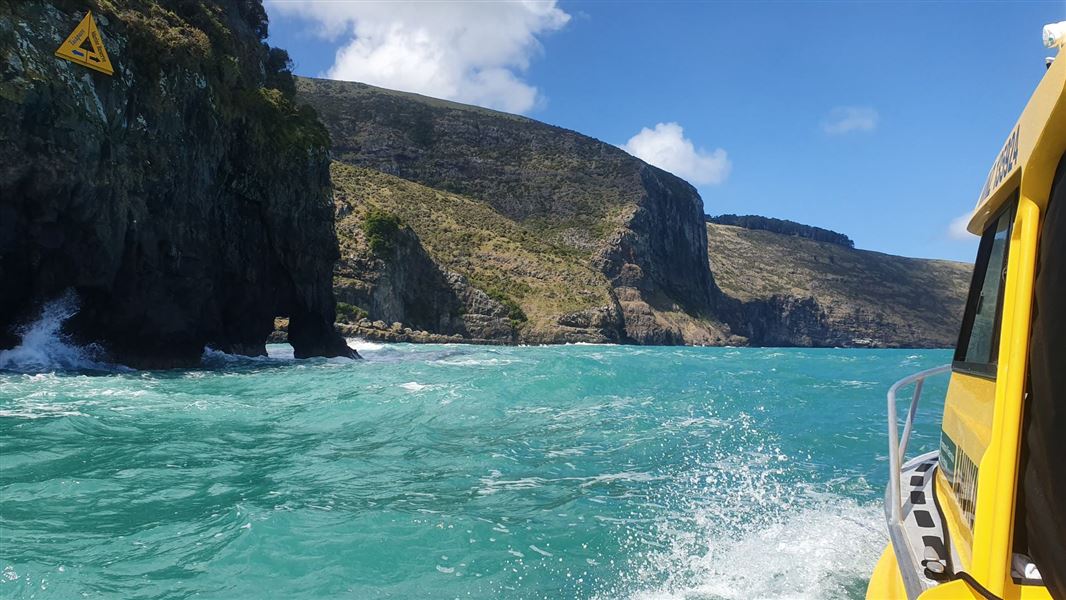Archived content: This media release was accurate on the date of publication.
Date: 26 December 2020
Since September, DOC warranted officers have been able to hand out fines for those found breaking conservation rules like fishing in marine reserves.
DOC has already issued four infringement notices in its first three Akaroa marine patrols of the 2020/21 summer season.
Marine ranger Tom MacTavish says there will be no excuses for anyone found fishing in Akaroa’s two marine reserves, with those caught receiving a fine of $600 and facing the possibility of a criminal prosecution.
He says the Akaroa reserves have some of the highest prosecution rates in the country for non-compliant boaties, and it’s often Cantabrians caught breaking the rules.
Over the last three summers, 27 people were caught in breach of the regulations in the two marine reserves.
The NZ Marine Industry Association has seen record boat sales recently and DOC is calling on new owners to take the time to understand their responsibilities before getting on the ocean.
“With a large number of boats expected on the water this summer, DOC is urging skippers to make sure they know where marine reserves are before they put a line over the side,” Tom says.
”Marine rangers don’t enjoy handing out fines as it takes them away from their other work, and considerable effort has gone into making it easy for boaties to follow the rules.”
DOC has installed large yellow triangle markers on the cliffs above the shoreline that show where the boundaries of the reserves are. These are clearly visible from the water. There is also signage providing guidance at boat ramps.
“Boaties are also encouraged to download the free Marine Mate phone app, which uses GPS to tell them where they are in relation to the marine reserves in real time.”
If encountering marine mammals in the harbour, skippers are reminded to travel no faster than idle speed if within 300m of them. Boaties should also ensure they do not circle around marine mammals or steer through any groups of animals.
Background
All forms of fishing and development are banned in marine reserves. They offer the highest level of marine protection and aim to create protected spaces that are valuable for scientific study and for New Zealanders to visit to see protected marine life.
DOC is running a multi-year study to investigate what effect the two marine reserves in Akaroa are having on fin-fish populations.
Akaroa Marine Reserve lies at the mouth of Akaroa harbour. It’s 512.15 hectares, about twelve percent of the harbour area, and contains several reefs that are home to a rich and diverse range of marine life.
Pōhatu Marine Reserve is centred on Flea Bay, on the southeast side of Banks Peninsula. It’s home to about 2600 white-flippered penguins/kororā – the largest little penguin colony on the mainland. There is also a local seal/kekeno colony, while dolphin and orca are regular visitors.
Before September 2020, DOC could only issue a warning or prosecute people found breaking marine reserve rules.
Contact
For media enquiries contact:
Email: media@doc.govt.nz
